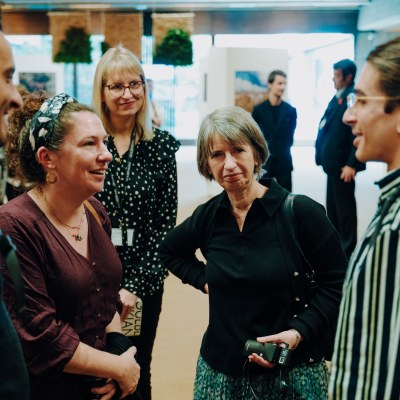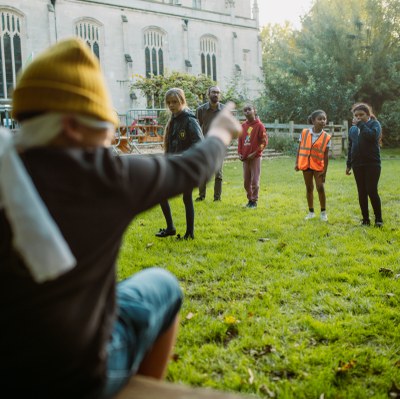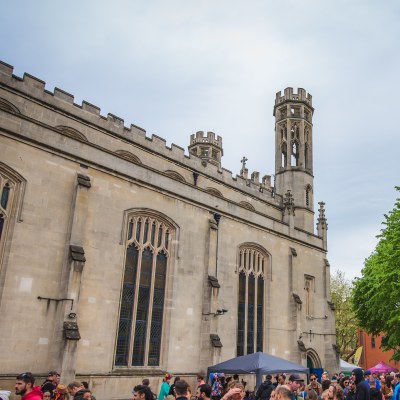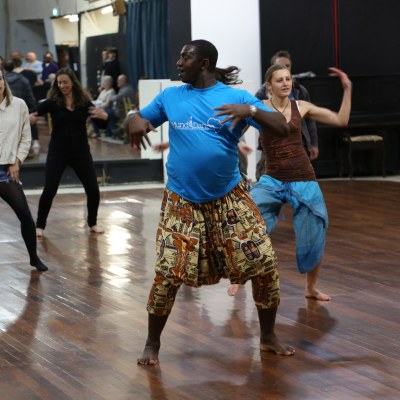In Conversation: Maca Gomez-Gutierrez on leadership, inclusion and culture
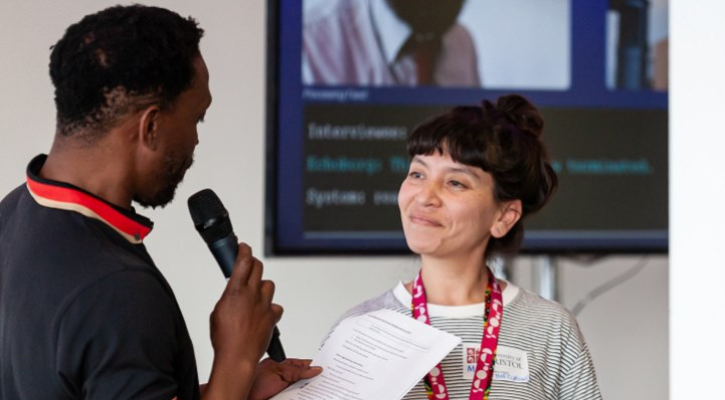
As we prepare for the upcoming Citizens’ Assembly for Culture, we’re speaking to leading voices in cultural engagement and democratic decision-making to inform and inspire the process. The Assembly will bring together citizens - people living, working or staying in the West of England - to shape a regional cultural offer that is inclusive and accessible.
In this interview, we hear from Maca Gomez-Gutierrez, an engagement professional and creative research producer. Maca has a decade of experience connecting research, culture, and community. From co-producing public engagement programs at We The Curious to supporting grassroots organizations in Colombia, her work highlights the transformative power of arts and culture.
Maca shares her insights on the challenges and opportunities in the cultural sector, the importance of diverse leadership, and how a Citizens’ Assembly can help amplify underrepresented voices.
“The Assembly will provide a level of public participation with regional impact that could reframe the way we think about culture”
Hi Maca! Tell us a bit about your work in the cultural sector and what drew you to this field.
As an engagement professional and creative research producer, I am interested in bringing research (in its broadest sense) into the cultural landscape, out of confinement into a space where everyone can be part of the conversation, and everyone’s experience, knowledge and expertise is recognised, welcomed and valued.
I have c. 10 years’ experience in both the UK and global south, most recently (2018-2023) producing We The Curious' public engagement with research programme of activities, workshops and participatory experiences, co-produced with research and community partners. Besides that, a personal favourite of mine (and close to my heart as I’m Colombian!) has been to produce Bringing Memories in from the Margins where I worked with grassroots organisations in Colombia and supported them to bring their creative projects to Bristol. Part of the MEMPAZ Project on inclusive transitional justice and creative memory processes for reconciliation in Colombia, Bringing Memories in from the Margins was a public programme of events including food, theatre, music and photography that took place over a week in March 2023 across multiple venues.
Personally, I like to mull over things, question, get angry, celebrate, explore alternatives; and I enjoy creating collective experiences and spaces where others might do so as well. There are so many important conversations and developments happening in the research world and we should all be participating in these. I think arts and culture have the potential to bring together all sorts of topics, practices, and experiences in ways that are innovative, surprising, engaging and that talk to and challenge our humanity; that’s what’s drawn me into this field.
What do you feel are some of the current challenges within the cultural sector and how would you suggest these could be addressed?
Beyond the obvious (lack of funding!), I feel there is a lack of diversity at leadership level. Specifically, a lack of diversity of ideas which of course arise from a lack of diversity of life experiences. I believe that a step towards solving this challenge is to recognise that leadership exists in different ways, and that many leaders sit outside the hierarchical structures of cultural organisations; implementing a collective approach to leadership can only be beneficial for the sector.
An additional challenge for me is how can we, as a sector, provide a cultural offer that reflects the ever evolving and changing nature of culture; particularly when we often experience a version of it that is static and monolithic. For me, once we recognise that culture is not only what has been labelled as so in museums, galleries etc. but an essential part of our everyday life- what we eat, how we eat, how we dress, the music we listen to, the very expression of our selves- then the cultural offer will increasingly reflect this and inhabit an ever growing diversity of spaces and experiences.
How do you think the regional cultural sector could benefit from a Citizens’ Assembly model or other democratic decision-making tools?
A Citizen’s Assembly model has the potential to bring into the conversation voices that are not usually present, have very low representation or might be completely excluded. For people participating in them, there can be a sense of ownership, of being able to have a say in what cultural offer their community and beyond might be able to engage with in the future.
This can only benefit the regional cultural sector since a sense of collective ownership and belonging can lead to more engagement with existing and future cultural offer. What’s more, the Assembly provides an opportunity for cultural organisations in the region to better understand people’s wants and needs, especially of those who are not regularly, if at all, coming through the doors.
What are your hopes for the future of Arts and Culture in the West of England?
I would like the arts and culture sector in the West of England (and everywhere else as a matter of fact!) to be a viable career option for young people of all backgrounds and not just for the ones who can afford it; and I would like the required infrastructure to support this to be in place e.g., strong arts programmes at schools, access to culture, paid training opportunities etc.
I would also like arts and culture to be truly recognised and valued as an important vehicle for civic engagement. Arts and culture permeate everything, it is the soil where an infinite number of wonderful things can grow on. We need a well-kept and healthy soil, one from where conversations, interactions, partnerships, friendships and action can sprout.
What are your thoughts on the upcoming Citizens' Assembly for Culture in the West of England?
It’s very exciting! The Assembly will provide a level of public participation with regional impact that could reframe the way we think about culture- what is culture and who gets to decide it? what do people want to consume and where? etc.- as well as potentially catalyse a truly innovative cultural offer.
I also believe that it could be the beginning of a stronger relationship of trust and partnership between audiences and the cultural sector, rooted in that very sense of ownership and belonging, which makes the uptake of the Assembly recommendations even more crucial as there will be an expectation to see at least some of the outputs from the Assembly materialise in a future cultural offer.
Anything else you would like to add?
As I was typing these answers, a thought came to me: a Citizen’s Assembly model could allow the ones of us who cannot vote in any elections (not British, not Commonwealth, not European) an opportunity to participate in democratic processes; and this can only be a good thing.
Interested in finding out more?
About Citizens for Culture
Citizens for Culture is an initiative from St Paul Carnival CIC, Trinity Community Arts, Citizens in Power and West of England Combined Authority and is supported through funding by Arts Council England, Paul Hamlyn Foundation and Calouste Gulbenkian Foundation (UK Branch).




